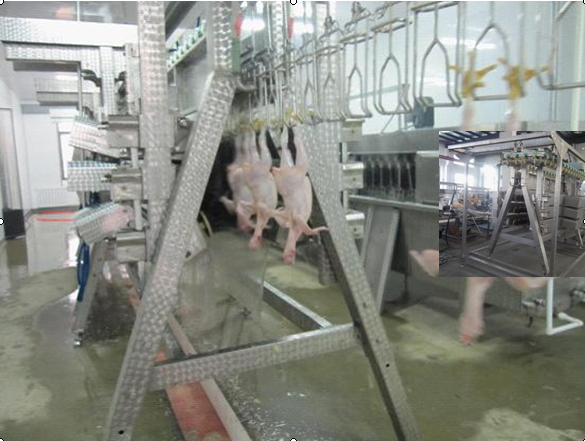

PRODUCT
CONTACT US
ZhengZhou Santow Agro Equipment Co., Ltd
Hotline:+86-371-5598 1030
Fax:+86-371-5598 1030
Phone:+86-187 6889 2838
Mail: sales@santow-agro.com
Halal Chicken – what does it really mean?
One issue that continues to be raised regularly by consumers surrounds the
production and supply of Halal chicken.
Questions raised include where can I buy Halal chicken? where can I buy
non-Halal chicken? why do chicken producers supply it? why don’t they
produce or supply it? and, what does the production of Halal chicken entail?
There’s certainly a lot of confusion amongst consumers about what Halal
chicken means, how it is produced and what it means in terms of bird welfare,
price and many other aspects.
(Please scan QR Code for 720 Factory Panoramic View)

What is Halal Chicken?
Halal food is food which adheres to Islamic law, and is therefore acceptable for
Muslims to eat. Halal food laws specify not only what types of foods and
beverages can be eaten, but also how the food is prepared.
Therefore, Halal chicken has been processed and prepared according to Islamic
law.
In practice, Halal Chicken means the following:
• a prayer is spoken at the commencement of slaughtering in the processing plant;
• the person supervising the slaughtering process must be of Muslim faith; and
• the processing plant has to be accredited by the local Muslim cleric.
If you actually went to a Halal accredited processing plant and witnessed the processing
of chickens, you would not be able to distinguish it from what happens in a non-Halal
plant. All birds are stunned prior to slaughter. For bird welfare and product quality reasons,
all plants need to have at least one person supervising the slaughtering process, whether
Halal or not, so staffing levels are identical whether producing Halal chicken or not.

Some common miscunderstanding amongst Consumers:
1. The Halal slaughter process is somehow ‘cruel’
WRONG!
This misunderstanding seems to stem from an incorrect belief that chickens killed in Halal
have not been stunned prior to slaughter. This misconception has possibly arisen because
the procedures for Halal slaughter can vary from place to place due to differing interpretations
of the Koran, and Halal slaughter in overseas abattoirs may not always include stunning.
All Halal slaughter of chickens includes prior stunning.
The stunning process doesn’t kill the birds; it is a process used to render the chickens
instantaneously unconscious and insensible to pain prior to them being killed. Perhaps
not a subject many people want to hear about, but the birds are actually slaughtered by
severing of the blood vessels in their necks, so that they die from blood loss (exsanguination).
However, the stunning process ensures that they do not regain consciousness prior to their
actual death by exsanguination.

2. All consumers of chicken meat end up paying more because of the costs of
Halal accreditation, even if they don’t want Halal chicken themselves
NO!
To meet the Halal accreditation requirements imposes minimal additional costs on chicken
processors. For a start, chicken processors have to have someone supervising the killing
process – so there are no additional staff involved. For a plant which has both an Halal and
non-Halal market, to change staff and segregate product based just on the minimal
requirements involved just wouldn’t make commercial sense – it is simply more efficient to
apply the practices required across the whole production run than to change staff / practices
and segregate product.
In reality, processing plants are subject to or participate in a range of certification and auditing
programs covering a range of product attributes such as bird welfare and product safety or
quality. Some of these are required by different customers or the various market sectors they
supply. The bigger the plant, generally the more diverse the market it serves and the greater the
number of certification and auditing programs it will need to adhere to. In most cases it is more
cost effective to simply run the practices required by the each program across the entire production
run, so that all product qualifies to be labelled and marketed as complying with the requirements
of a range of different customers or market segments, even though not all products will actually
be labelled as complying with each program.